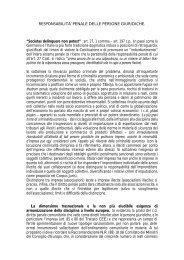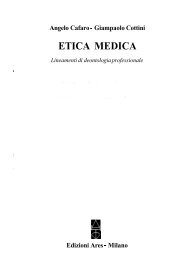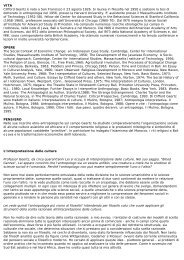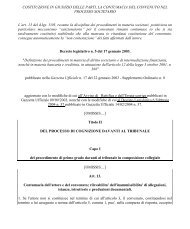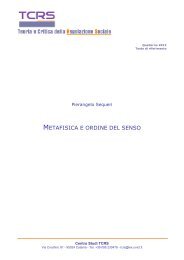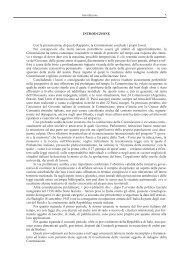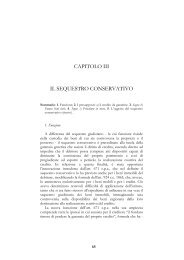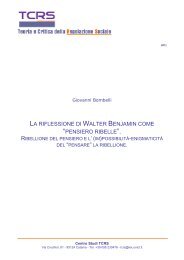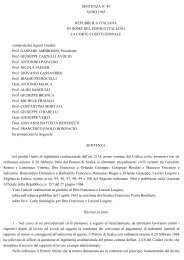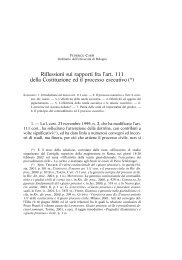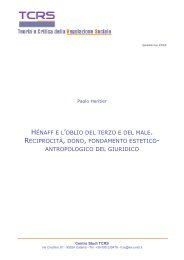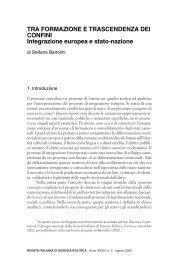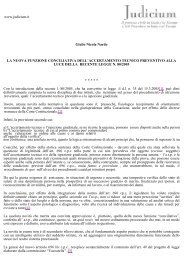FOGLI DI LAVORO per il Diritto internazionale 3 ... - Giurisprudenza
FOGLI DI LAVORO per il Diritto internazionale 3 ... - Giurisprudenza
FOGLI DI LAVORO per il Diritto internazionale 3 ... - Giurisprudenza
You also want an ePaper? Increase the reach of your titles
YUMPU automatically turns print PDFs into web optimized ePapers that Google loves.
204<br />
<strong>FOGLI</strong> <strong>DI</strong> <strong>LAVORO</strong> <strong>per</strong> <strong>il</strong> <strong>Diritto</strong> <strong>internazionale</strong> 3/2008<br />
conscience and religion, and the duty of the national authorities<br />
to impart to the public information on matters of general<br />
concern.<br />
97. The Court notes in the first place that the Basic Law<br />
empowers the Government to collect and disseminate<br />
information of their own motion. In reviewing the<br />
constitutionality of this activity, the Federal Constitutional Court<br />
has developed case-law limiting the Government's power in this<br />
field. The Government, in fulf<strong>il</strong>ling the functions assumed by it,<br />
must take care that information is conveyed in a neutral manner<br />
when dealing with religious and ph<strong>il</strong>osophical convictions and is<br />
bound by the standards inherent in the proportionality principle.<br />
Even when circumscribed in this way, such information clearly<br />
cannot exclude on the part of the Government certain<br />
assessments capable of encroaching on the religious or<br />
ph<strong>il</strong>osophical sphere.<br />
98. Having regard not only to the particular circumstances of<br />
the case but also to its background, the Court notes that at the<br />
material time the increasing number of new religious and<br />
ideological movements generated conflict and tension in<br />
German society, raising questions of general importance. The<br />
contested statements and the other material before the Court<br />
show that the German Government, by providing people in good<br />
time with explanations it considered useful at that time, was<br />
aiming to settle a burning public issue and attempting to warn<br />
citizens against phenomena it viewed as disturbing, for example,<br />
the appearance of numerous new religious movements and their<br />
attraction for young people. The public authorities wished to<br />
enable people, if necessary, to take care of themselves and not to<br />
land themselves or others in difficulties solely on account of<br />
lack of knowledge.<br />
99. The Court takes the view that such a power of preventive<br />
intervention on the State's part is also consistent with the<br />
Contracting Parties' positive obligations under Article 1 of the<br />
Convention to secure the rights and freedoms of <strong>per</strong>sons within<br />
their jurisdiction. Those obligations relate not only to any<br />
interference that may result from acts or omissions imputable to<br />
agents of the State or occurring in public establishments, but<br />
also to interference imputable to private individuals within non-<br />
State entities (see, mutatis mutandis, Calvelli and Ciglio v. Italy



